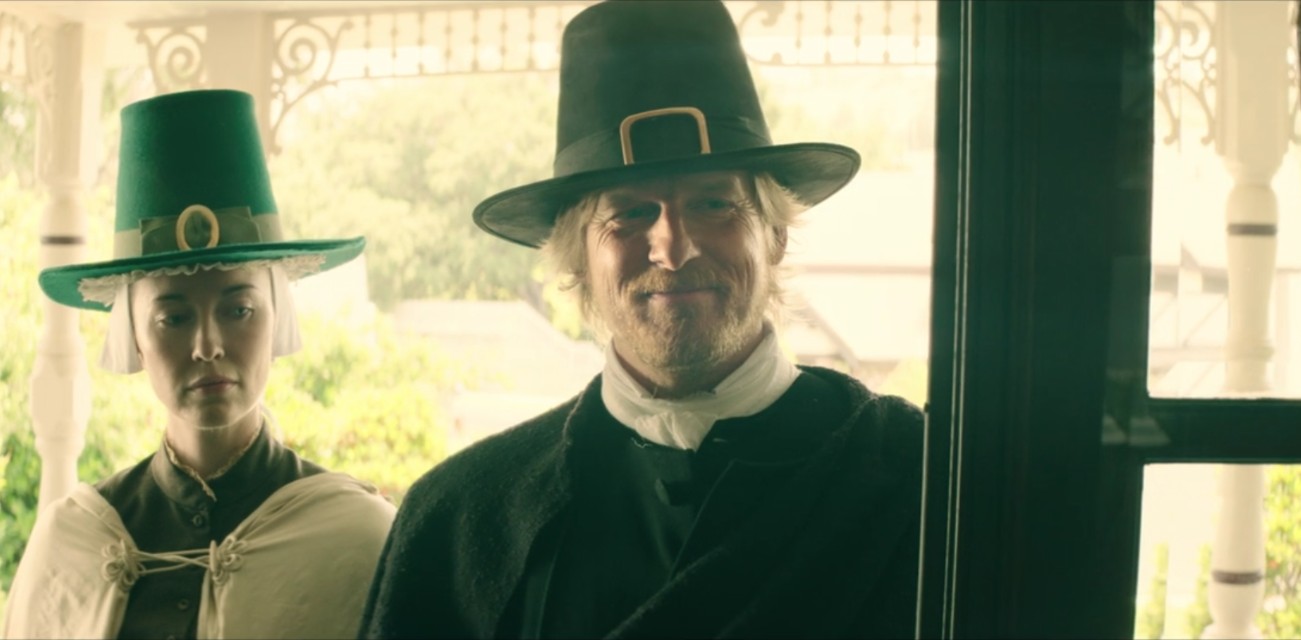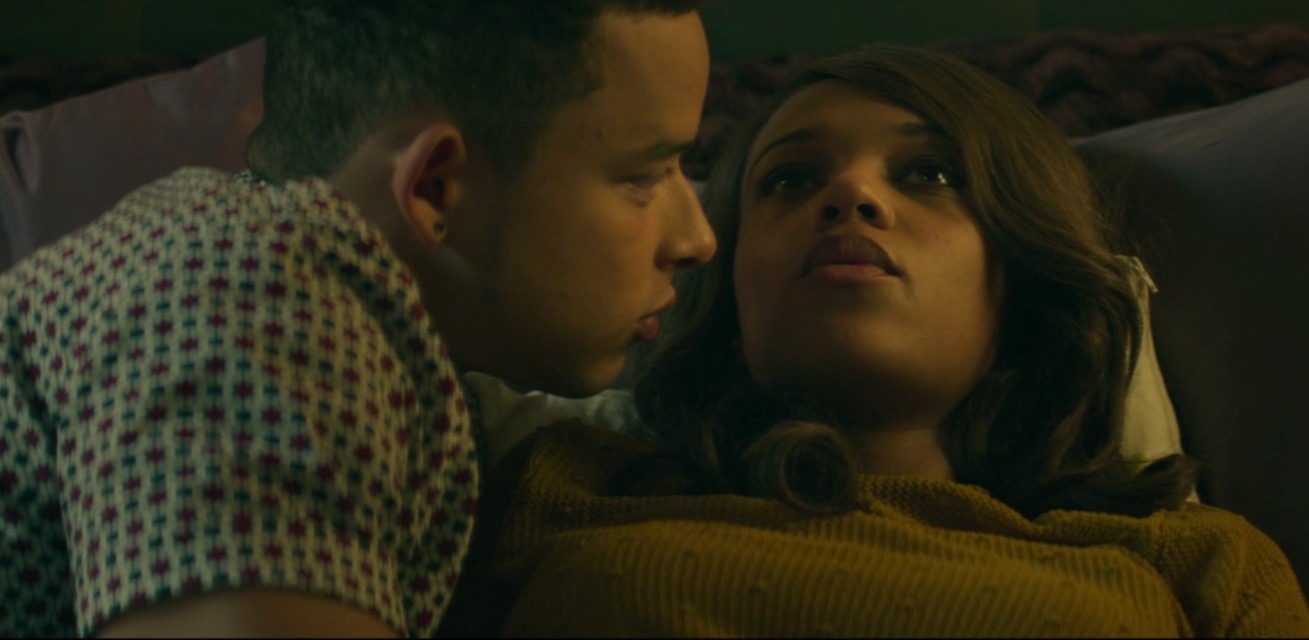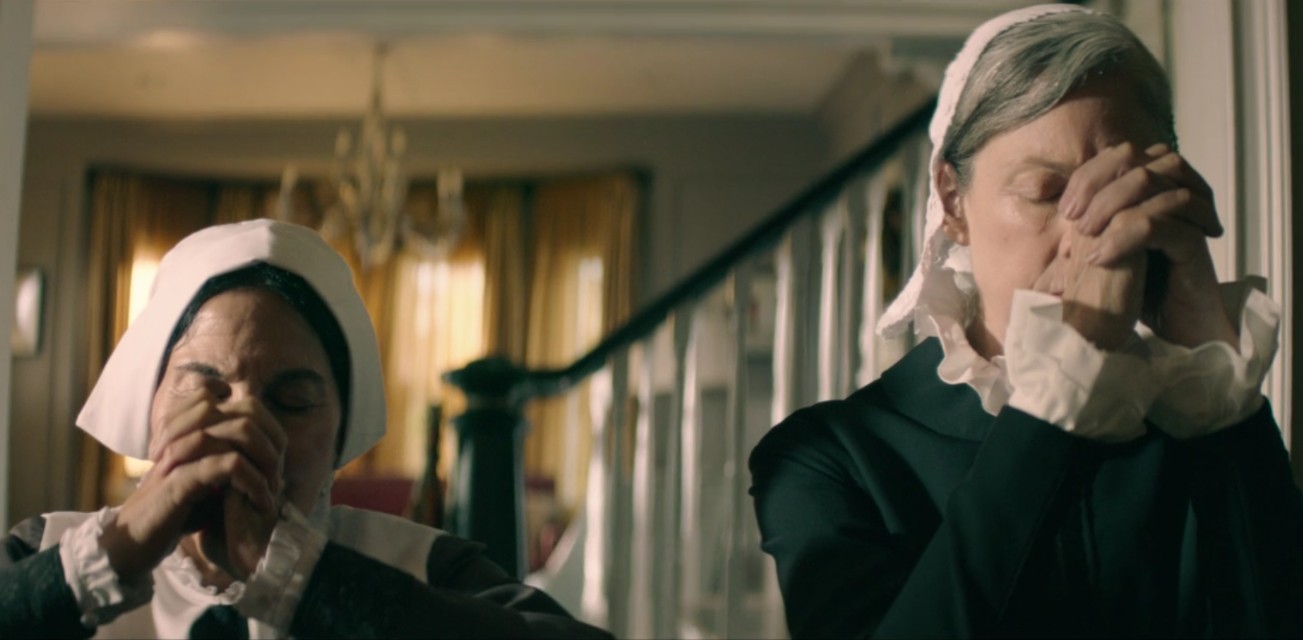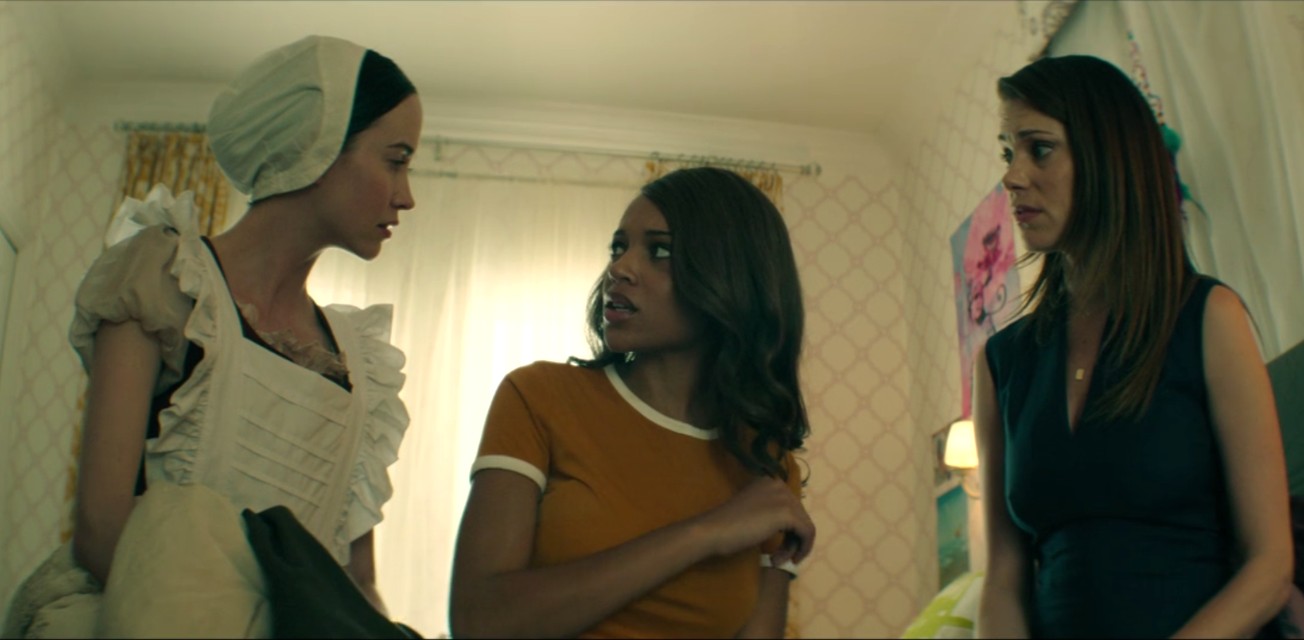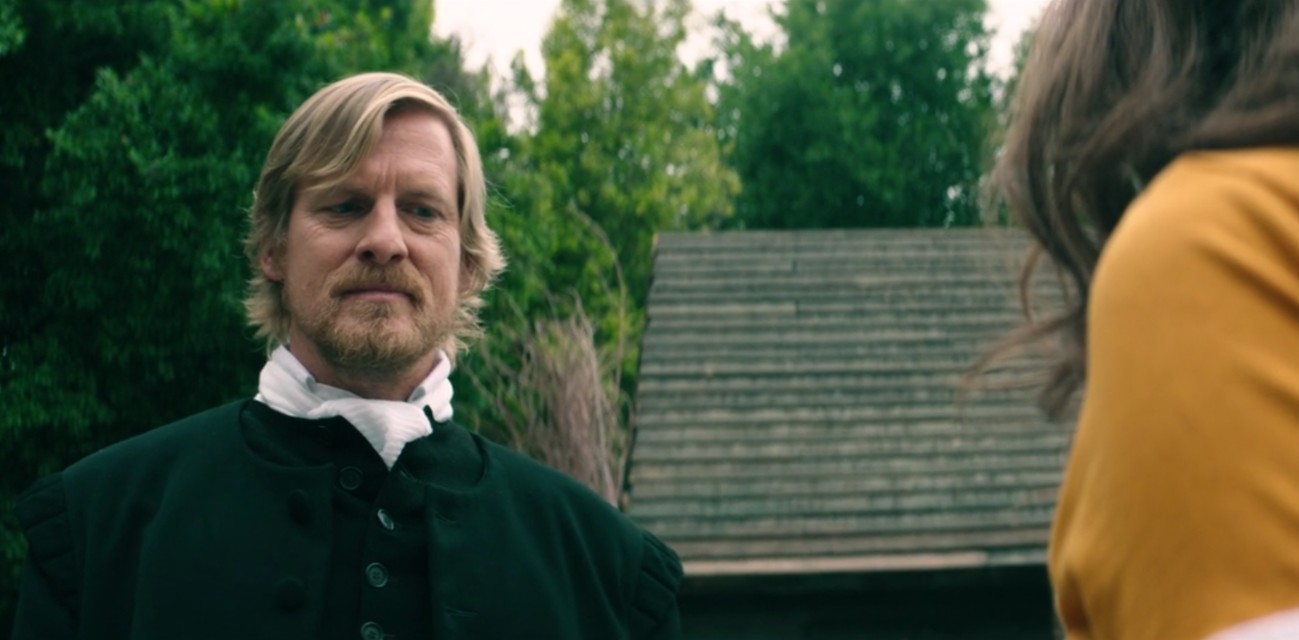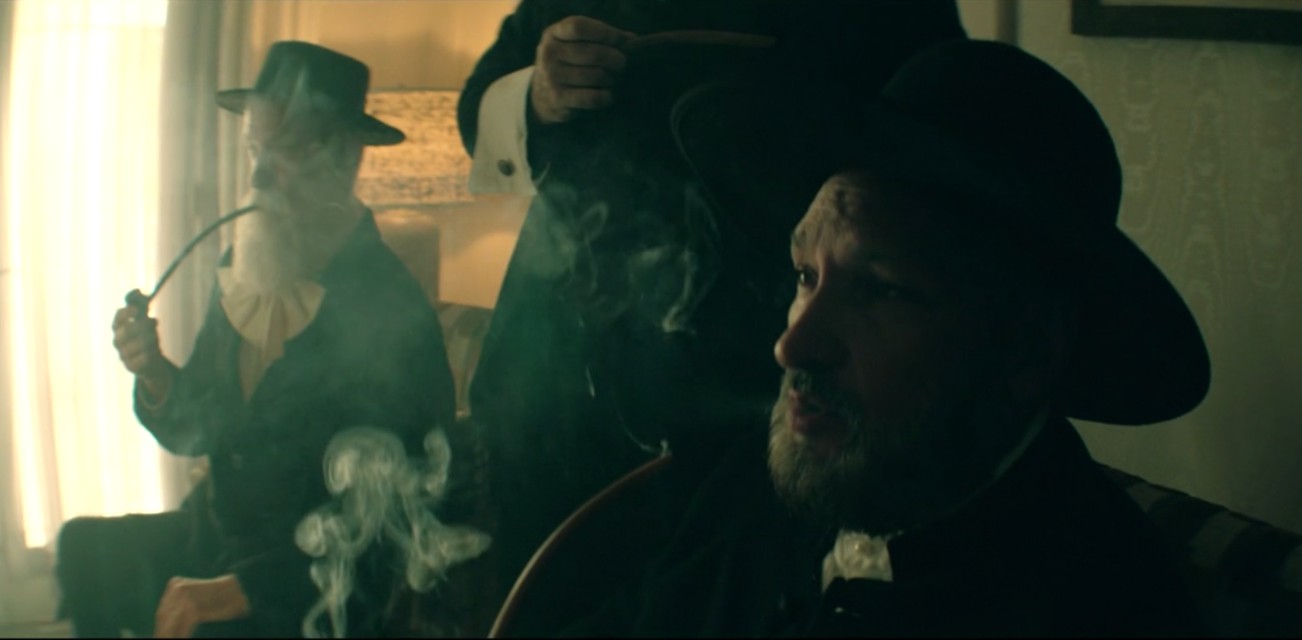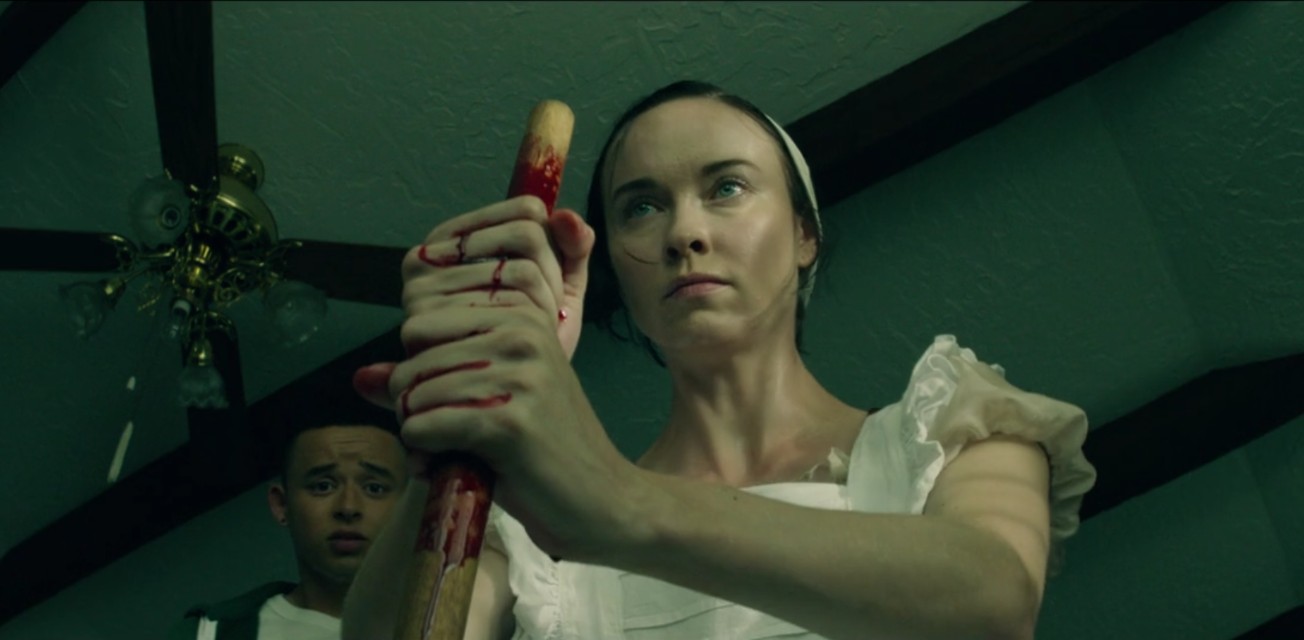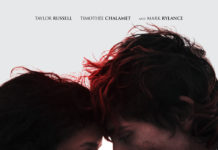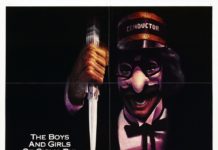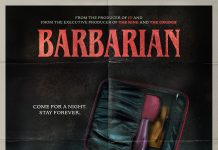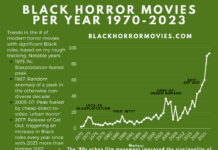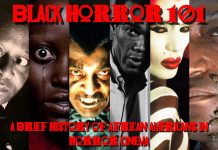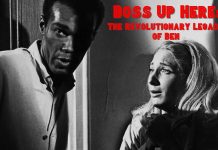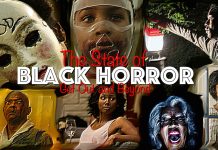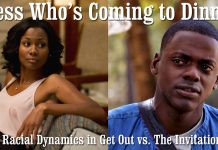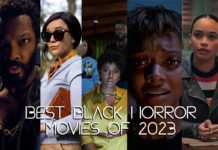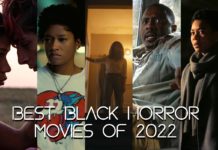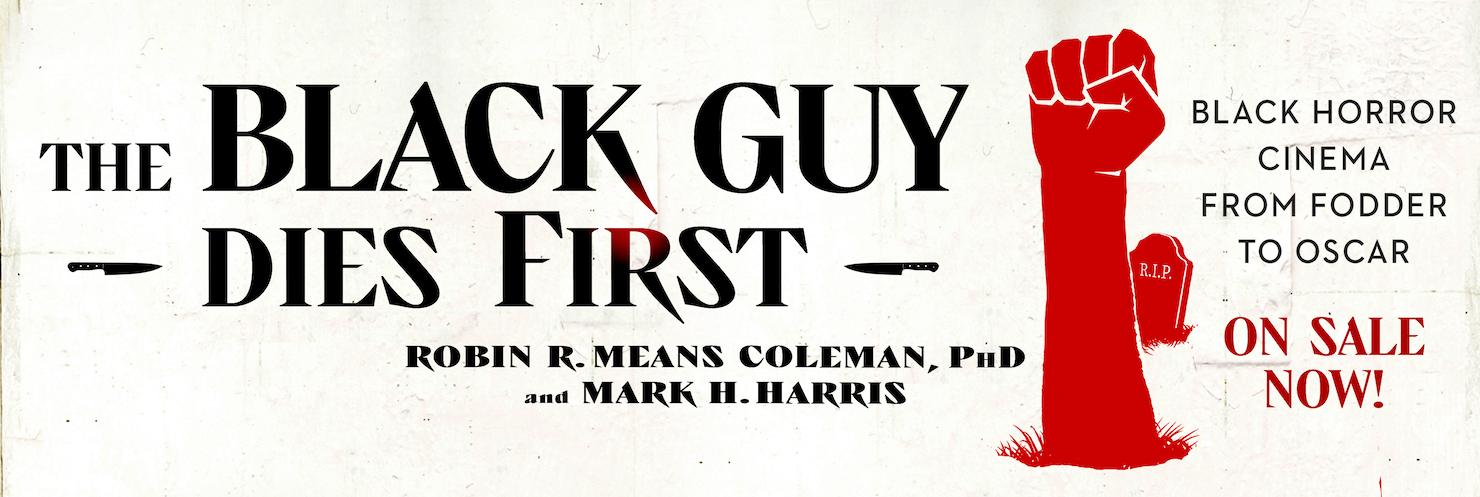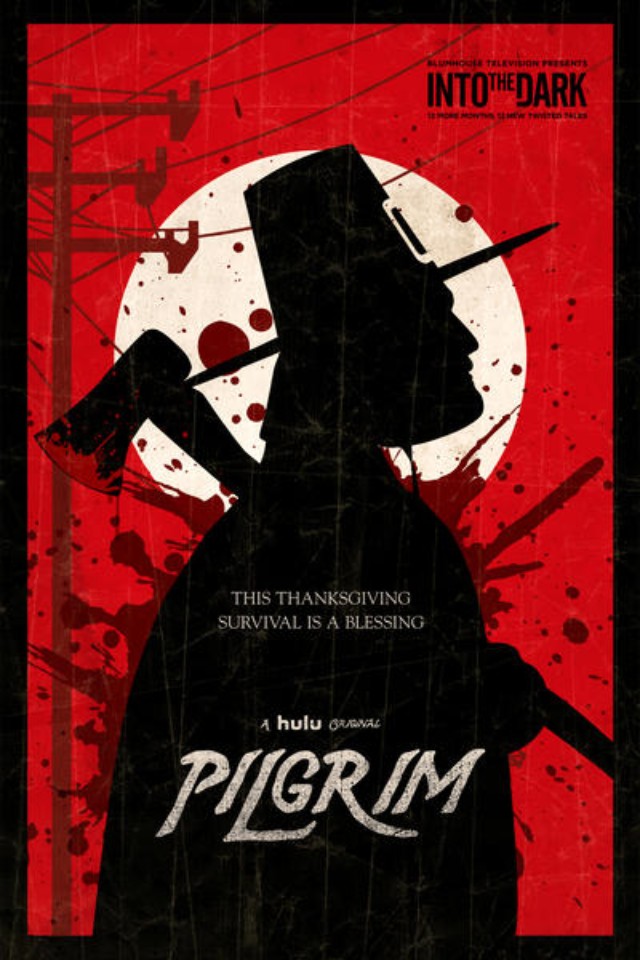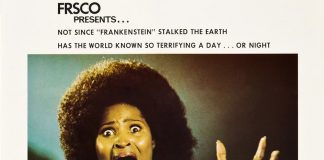Unlike Halloween and Christmas, Thanksgiving has struggled to find a foothold within the horror genre — unless, perhaps, you’re a Native American who tells campfire stories about the White Man’s arrival, spreading pestilence, genocide and gluten intolerance. Cinematically speaking, though, Thanksgiving has been a famine for horror; even lesser holidays like April Fool’s Day and Valentine’s Day have signature scary films, while Thanksgiving basically has only a couple of ThanksKilling B-movies, the faux trailer in Grindhouse and a few flicks (Home Sweet Home, Blood Rage, Kristy) that happen to take place during the holiday but whose identity isn’t irrevocably tied to Thanksgiving.
While Pilgrim isn’t a threat to fill the void of an enduring horror classic for the holiday, it is one of the rare fright films to fully embrace the theme, and given the dearth of competition, this gleefully dark tale immediately jumps to the top of the heap as The Best Thanksgiving Horror Movie of All Time*.
*For now.
Whereas the previous Thanksgiving entry in the holiday-centric anthology series Into the Dark, Flesh & Blood, was only tangentially related to T-Day, Pilgrim buys in wholeheartedly with a preposterous psycho Pilgrim concept that works in part because it is so outrageous. Other Into the Dark features have been entertaining but generally serious-minded affairs, but Pilgrim has a dark comedic streak that starts with the premise of a suburban family hiring a service that recreates an “authentic” original Thanksgiving experience in order to help “disconnected” families reunite.
The humor isn’t the only thing about Pilgrim that’s black, however. Its main protagonist is Cody (Reign Edwards), whose black mom left her white dad, Shane (Kerr Smith), on Thanksgiving Day a decade or so earlier and apparently didn’t care enough to return for her daughter. Now, her dad is remarried to an uptight white woman named Anna (Courtney Henggeler), and they’ve gifted Cody with an irredeemably naive little brother, Tate (Antonio Raul Corbo). While on break from college, Cody learns that Anna has arranged for the aforementioned “Thanksgiving experience” reenacting how the holiday was celebrated back in “the olden days” before everyone began interacting with their electronic devices rather than their families.
Cody, as the only person of color in the family and the resident smart-ass Millennial, scoffs at the idea, reminding Anna that things didn’t turn out so well for the Native Americans after the Pilgrims’ arrival and suggesting that one of her friends’ families is hosting a Nazi-themed Thanksgiving. When she secretly expresses a wishbone-fueled desire that the celebration blows up in Anna’s face, Cody doesn’t realize how bad it will all turn out. The Pilgrim troupe, it turns out, are less like cosplayers and more like cult members who INSIST that everyone expresses gratitude for everything in their lives…or else.
Although black “final girls” are more prevalent than they used to be (granted, that’s not saying much), Cody still stands out as smart, “woke” and charmingly rebellious with a biting wit. While she’s pretty, we don’t get the sense that, as with some of the drabber final girls in horror movie history, we’re supposed to like her just because of her looks. Edwards does a marvelous job inhabiting the character and keeping her from veering into an intolerable vaping, Snapchatting, OK Boomer-ing generational stereotype. Also stellar is Peter Giles as her adversary Ethan, the menacing missionary spreading the sermon of gratitude, his initially placid demeanor eventually giving way to a maniacal fervor that turns the latter half of the film into a gloriously demented spectacle.
The performances and the tongue-in-cheek tone of Pilgrim help us look past its shortcomings — like some awkward camerawork and hyperactive cuts, plus plot elements that are either too quickly glossed over (like the backstory with Cody’s mom) or too heavily beaten into our skulls (OK, we get it: Shane is too absorbed in his job; we don’t need to see another shot of him glancing at the stocks on his tablet.).
Even with its slapdash moments, though, the movie’s wonkiness feeds into its cultish appeal, which combines grim humor, gross-out moments and outlandish situational elements. The writing team of Marcus Dunstan and Patrick Melton are more in their Feast and Piranha 3DD mode than their more serious-minded Saw and Collector efforts, but they seem seasoned enough now to tone down the sometimes insufferable campiness of their comedic scripts.
One unexpected element of the story from Dunstan and Melton is its socio-political inclination. That is, while it’s not overtly political, it’s not hard to read into the story of an oppressive effort to restore the conservative, religiously inspired values of the “good old days” on a POC who knows that the good old days weren’t so good for people who looked like her. Interestingly, although its implications are never discussed in the movie, all three families that were targeted by the Pilgrim cult — Cody’s, her boyfriend Finn’s (Taj Speights) and a random family whose disappearance is shown only in newspaper clippings during the opening credits (another glossed-over plot point) — were mixed-race.
The racial element, intended or not, raises the specter of coded language involving the gratitude (or lack thereof) of African Americans. The concept of gratitude has become politicized by the sort of “America: love it or leave it” patriotism that refuses to accept that anything is wrong with the U.S. other than that which is the result of those who are not “true” Americans — i.e., immigrants, racial minorities, non-Christians, the LGBT community, et al. (The fact that the Pilgrims were foreign refugees escaping religious persecution is no doubt lost on such people.)
Despite the heavy connotation, however, Pilgrim never takes itself too seriously. Clocking in at barely 80 minutes (including credits), it gets its point across without wearing out its welcome, which is more than can be said about some Thanksgiving guests.
